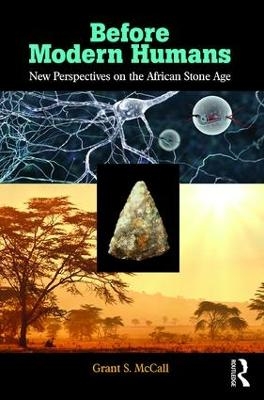
Before Modern Humans
New Perspectives on the African Stone Age
Seiten
2016
Left Coast Press Inc (Verlag)
978-1-61132-223-1 (ISBN)
Left Coast Press Inc (Verlag)
978-1-61132-223-1 (ISBN)
This fascinating volume reviews Lower and Middle Pleistocene African prehistory and presents a model in which the onset of the Middle Stone Age (before 285,000 years ago) marks the origins of landscape use patterns resembling those of modern human foragers.
This fascinating volume, assessing Lower and Middle Pleistocene African prehistory, argues that the onset of the Middle Stone Age marks the origins of landscape use patterns resembling those of modern human foragers. Inaugurating a paradigm shift in our understanding of modern human behavior, Grant McCall argues that this transition—related to the origins of “home base” residential site use—occurred in mosaic fashion over the course of hundreds of thousands of years. He concludes by proposing a model of brain evolution driven by increasing subsistence diversity and intensity against the backdrop of larger populations and Pleistocene environmental unpredictability. McCall argues that human brain size did not arise to support the complex patterns of social behavior that pervade our lives today, but instead large human brains were co-opted for these purposes relatively late in prehistory, accounting for the striking archaeological record of the Upper Pleistocene.
This fascinating volume, assessing Lower and Middle Pleistocene African prehistory, argues that the onset of the Middle Stone Age marks the origins of landscape use patterns resembling those of modern human foragers. Inaugurating a paradigm shift in our understanding of modern human behavior, Grant McCall argues that this transition—related to the origins of “home base” residential site use—occurred in mosaic fashion over the course of hundreds of thousands of years. He concludes by proposing a model of brain evolution driven by increasing subsistence diversity and intensity against the backdrop of larger populations and Pleistocene environmental unpredictability. McCall argues that human brain size did not arise to support the complex patterns of social behavior that pervade our lives today, but instead large human brains were co-opted for these purposes relatively late in prehistory, accounting for the striking archaeological record of the Upper Pleistocene.
Grant S. McCall is Associate Professor of Archaeology at the Department of Anthropology of Tulane University, USA.
1 Introduction
2 Stone Tool Technology and the Organizational Approach
3 The Organization of Early Stone Age Lithic Technology
4 The Organization of Middle Stone Age (MSA) Lithic Technology
5 Fear and Loathing in Paleolithic Faunal Analysis
6 Implications of Lower and Middle Pleistocene Faunal Assemblage Composition
7 Implications of Lower and Middle Pleistocene Hominin Bone Modification Patterns
8 Alternative Perspectives on Hominin Biological Evolution and Ecology
9 Conclusion
| Erscheinungsdatum | 03.03.2016 |
|---|---|
| Verlagsort | Walnut Creek |
| Sprache | englisch |
| Maße | 152 x 229 mm |
| Gewicht | 725 g |
| Themenwelt | Geisteswissenschaften ► Archäologie |
| Geisteswissenschaften ► Geschichte ► Regional- / Ländergeschichte | |
| Naturwissenschaften ► Biologie ► Evolution | |
| Naturwissenschaften ► Geowissenschaften ► Mineralogie / Paläontologie | |
| ISBN-10 | 1-61132-223-5 / 1611322235 |
| ISBN-13 | 978-1-61132-223-1 / 9781611322231 |
| Zustand | Neuware |
| Haben Sie eine Frage zum Produkt? |
Mehr entdecken
aus dem Bereich
aus dem Bereich
Erinnerungen
Buch | Softcover (2024)
Pantheon (Verlag)
16,00 €
Universalgelehrter, Polarreisender, Entdecker
Buch | Hardcover (2024)
mareverlag
28,00 €


